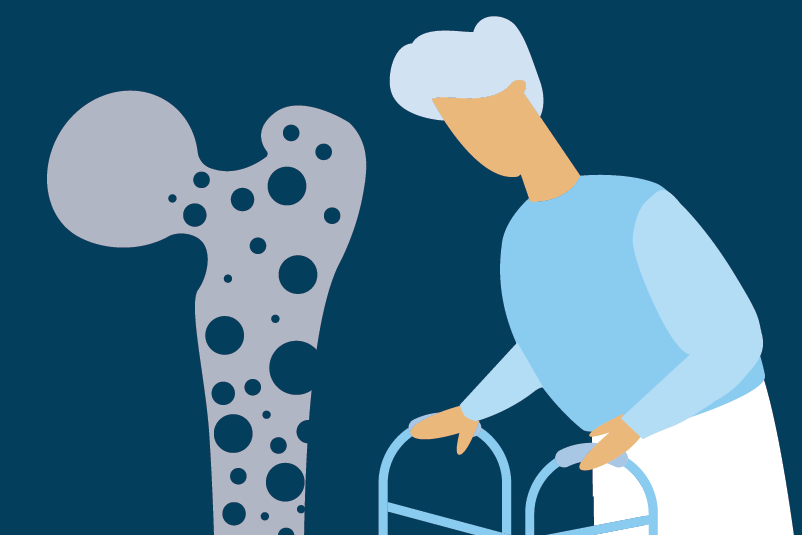#374 Vitamin D and Fracture Prevention: Not what it’s cracked up to be?

Reading Tools for Practice Article can earn you MainPro+ Credits
Join NowAlready a CFPCLearn Member? Log in
- Eight systematic reviews1-8 of 7-36 randomized controlled trials (RCTs); 34,000-76,000 mostly community-dwelling women: some with previous fracture, established osteoporosis or metabolic bone disease, followed 9-84 months.
- Vitamin D versus placebo/no treatment:
- Total fracture:1-8 No difference.
- Hip fracture:1-5,8 No difference. One systematic review7 (varying high doses) suggested slightly higher risk in women (1.2% versus 0.9%).
- Total or hip fractures:
- High dose (>800 IU): Three systematic reviews1,4,8 showed no difference, one7 showed increased risk (described above) and one6 showed benefit, but no absolute numbers reported.
- Baseline vitamin D level <50 nmol/L1 or previous fracture:2 No difference.
- Vitamin D-calcium combination versus placebo:
- Total fracture: 10.9% versus 11.5% (placebo), number needed to treat (NNT)=167.2 Others showed similar.3,5,6 One systematic review did not report largest RCT.1
- Removing two RCTs of women in long-term care: Results no longer statistically different.2
- Hip fracture:2 1.5% versus 1.8% (placebo), NNT=333.
- Two systematic reviews found similar; 3,5 one found no difference.8
- Total or hip fracture:
- Baseline vitamin D <50 nmol/L1 or previous fracture:1,2 No difference.
- Total fracture: 10.9% versus 11.5% (placebo), number needed to treat (NNT)=167.2 Others showed similar.3,5,6 One systematic review did not report largest RCT.1
- Adverse events:
- Vitamin D alone: None.2
- Combination: No difference in mortality or gastrointestinal effects;2 renal calculi increased (2.5% versus 2.1% placebo).7
- Limitations: Disproportionate number of smaller positive studies, skewing results towards favouring vitamin D.2,4 Randomization process and concealment uncertain.2
- Calcium alone has no effect on the risk of total or hip fracture.1,8
- Osteoporosis Canada: Supplementation with vitamin D and calcium is unlikely to have clinically important benefit if diet contains adequate calcium.9
- Measuring vitamin D levels routinely is unnecessary. No RCTs have evaluated treating to a target vitamin D level to prevent fractures.10















very useful information for everyday practice
reviewed for a change of practice
Good information contrary to current conventional practice.
Nice reminder to update knowledge
Things are changing. Take home: no more D supplements
Should we stop advocating/prescribing vitamin D then?
It is sad when a commonly supported therapy turns out not to be effective. Perhaps vitamin D supplementation started at younger age would make a difference. Perhaps exercise especially progressive resisitive exercise will make a difference and well as smoking cessation.
Pas de preuve d’efficacité pour la vitamine D dans toutes les circonstances.
None
This is what I thought.
Very interesting!
I wonder about the other potential benefits of Vit D and the need to correct for deficiency beyond bone health so that for an individual patient we could give the best advice if they are at high risk for deficiency or are deficient?
good to know
It would appear that the use of Vitamin D does not decrease the incidence of fractures.
Another emperor’s suit. Likely to become yet another health shibboleth.
And yet….with an NNT of 167 is better than CRC screening. Bet the QuALY would be low.
Good info
very interesting; will change my practice
Interesting about the lack of fracture risk reduction.
Not surprised that routine measurement of Vid D levels has no impact on fragility fracture rates
good info
Surprising outcome! Yet VitD and Calcium seem standard for patients admitted to hospital for fracture, or if seen by MD for osteoporosis management??